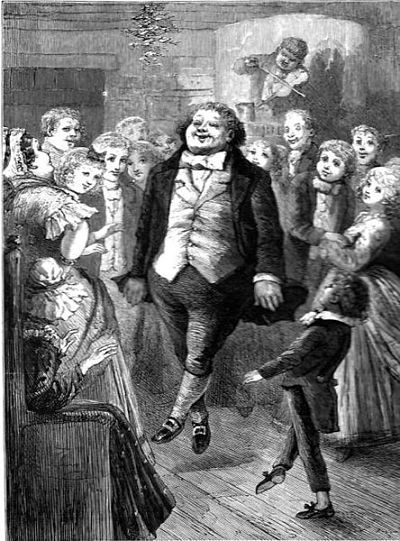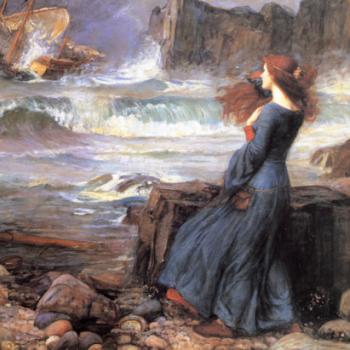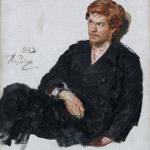 When I was a boy, my Papaws made me want to be old. They had time to tell stories, being retired and all, and they were gentleman. They wore suits to church and had great hats. Even when he was a young man, my dad was well on his way to adulthood: he has spent his life being a man, not a boy. Now that he is seventy-eight, Dad keeps doing interesting things. He gives old age a good name. If there is enjoyment to be had, then Dad is game, but never at the cost of his adulthood.
When I was a boy, my Papaws made me want to be old. They had time to tell stories, being retired and all, and they were gentleman. They wore suits to church and had great hats. Even when he was a young man, my dad was well on his way to adulthood: he has spent his life being a man, not a boy. Now that he is seventy-eight, Dad keeps doing interesting things. He gives old age a good name. If there is enjoyment to be had, then Dad is game, but never at the cost of his adulthood.
He is a grownup and this Christmas those of us with the years to be grownup need to aspire to be grownup. Charles Dickens presents the perfect picture of joyful Christian adulthood in A Christmas Carol.
Scrooge is shown his first boss by the Ghost of Christmas Past and the man is distinctly untrendy, but absolutely joyous. He creates a party for his employees that allows the younglings to enjoy themselves, but includes everyone. A child can have fun at Mr. Fezziwig’s party (best played by Fozzie Bear in A Muppets Christmas Carol), a teenager will have fun, but an older person will flourish.
How?
Mr. Fezziwig has learned the lessons of jollification. He does not envy the young their youth, instead deploying the asset of age and experience at the dance. Fezziwig and the luminous Mrs. could not keep up with every dance, but:
But the great effect of the evening came after the Roast and Boiled, when the fiddler (an artful dog, mind! The sort of man who knew his business better than you or I could have told it him!) struck up “Sir Roger de Coverley.” Then old Fezziwig stood out to dance with Mrs Fezziwig. Top couple too; with a good stiff piece of work cut out for them; three or four and twenty pair of partners; people who were not to be trifled with; people who would dance, and had no notion of walking.
But if they had been twice as many — ah, four times — old Fezziwig would have been a match for them, and so would Mrs Fezziwig. As to her, she was worthy to be his partner in every sense of the term. If that’s not high praise, tell me higher, and I’ll use it. A positive light appeared to issue from Fezziwig’s calves. They shone in every part of the dance like moons. You couldn’t have predicted, at any given time, what would have become of them next. And when old Fezziwig and Mrs Fezziwig had gone all through the dance; advance and retire, both hands to your partner, bow and curtsey, corkscrew, thread-the-needle, and back again to your place; Fezziwig cut — cut so deftly, that he appeared to wink with his legs, and came upon his feet again without a stagger.
I have been married now for thirty-one years, God bless each one, and know the trick it describes. Hope and I know each other in ways that no young couple can and we can anticipate every motion. You dance better than we do, but you cannot dance together better. We know each other.
Adult jollification depends on knowledge. We enjoy each other’s company, because there is nothing to prove. Old friends, old lovers, old co-workers have one hundred inside jokes and can anticipate and delight with almost no effort. To an outsider the joy seems effortless, but it is the product of decades of patient work culminating in party perfection!
Jollification as a Fezziwig needs practice. Hope and I have held our own Christmas party, don’t ask the details (!), for decades and we know what to do. We know when to read, when to sing, when to pull back. We may not be as good as the Fezziwig couple (who is?), but we have practiced.
To be joyous as a Fezziwig does not take much money, a few pounds is all Fezziwig spent, but it does require time. The adult Fezziwig knows that a good party is a good thing. We work, because we must. We party, because we should. The Fezziwig, the adult in the room, knows that the overly serious Scrooge is a danger to himself and others. He needs to caper or he will cut a mean figure in old age.
Fezziwig does not have to be the bride at every wedding, the corpse at every funeral, or the baby at every christening. He is willing to let the younglings party while he watches. He takes part by making a place for all to enjoy themselves, but knows this makes what must be done a pleasure and not a mere duty:
“A small matter,” said the Ghost, “to make these silly folks so full of gratitude.”
“Small!” echoed Scrooge.
The Spirit signed to him to listen to the two apprentices, who were pouring out their hearts in praise of Fezziwig: and when he had done so, said,
“Why! Is it not! He has spent but a few pounds of your mortal money: three or four perhaps. Is that so much that he deserves this praise?”
“It isn’t that,” said Scrooge, heated by the remark, and speaking unconsciously like his former, not his latter, self. “It isn’t that, Spirit. He has the power to render us happy or unhappy; to make our service light or burdensome; a pleasure or a toil. Say that his power lies in words and looks; in things so slight and insignificant that it is impossible to add and count them up: what then? The happiness he gives, is quite as great as if it cost a fortune.”
A Fezziwig is rare today. Old men wish to be young men and make fools of themselves or they think growing old means ceasing to do anything. Instead, we need grownup men and women who bring a dance, a piece of music, a good tale to the party. They have one trick, one move in a dance like Roger de Coverley, that dazzles, because it is the product of time.
The man-boy is absurd. The old, dried up Scrooge is a dullard The old man is honored in his time and his presence at a party is a pleasure. For those of us who are older: let us aspire to be Mr and Mrs Fezziwig.
















